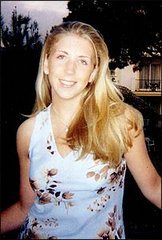 To begin with, I found it uncomfortably enthralling that a
21-year-old girl would move to Tokyo to take a job literally, and only, flirting with and flattering
men – a 21st century Geisha. Western women are highly valued by the
wealthy Japanese businessmen who frequent the Roppongi clubs. For some reason
it would seem less disturbing if they were prostitutes.
To begin with, I found it uncomfortably enthralling that a
21-year-old girl would move to Tokyo to take a job literally, and only, flirting with and flattering
men – a 21st century Geisha. Western women are highly valued by the
wealthy Japanese businessmen who frequent the Roppongi clubs. For some reason
it would seem less disturbing if they were prostitutes.Saturday, February 2, 2013
People Who Eat Darkness - The True Story of a Young Woman Who Vanished From the Streets of Tokyo - and the Evil That Swallowed Her Up, By Richard Lloyd Parry
The original title of this book was People Who Eat Darkness. The subtitle was added for American audiences.
What does that say about us? While you are thinking about that, I’ll fill you
in on this oddly engaging book.
This is the “true crime” story about a 21-year-old British
former flight attendant, Lucy Blackman (pictured), who moved to Tokyo at the invitation of
a friend. Her friend assured her that she could make gobs of money working as a "hostess" in the Roppongi entertainment district clubs. Unfortunately, Lucy hooked up with
a serial sex offender and ended up drugged, dismembered and buried in a cave.
Interestingly, that was sort of the least interesting part of the book.
What kept me reading was author Richard Lloyd Parry’s exposé
of the Japanese culture, and his keen observations on how Lucy’s disappearance
and death so drastically affected each member of her family.
 To begin with, I found it uncomfortably enthralling that a
21-year-old girl would move to Tokyo to take a job literally, and only, flirting with and flattering
men – a 21st century Geisha. Western women are highly valued by the
wealthy Japanese businessmen who frequent the Roppongi clubs. For some reason
it would seem less disturbing if they were prostitutes.
To begin with, I found it uncomfortably enthralling that a
21-year-old girl would move to Tokyo to take a job literally, and only, flirting with and flattering
men – a 21st century Geisha. Western women are highly valued by the
wealthy Japanese businessmen who frequent the Roppongi clubs. For some reason
it would seem less disturbing if they were prostitutes.
And then there’s the Japanese criminal justice system, which
even Parry (pictured), who was the Tokyo bureau chief for the London Times for 10 years could not explain. Tokyo consistently
ranks among the world's safest large cities. But as Parry pointed out, “low
crime rates says more about Japanese culture than about police efficiency.” And
in fact, it seemed that the police were so inexperienced at dealing with
abduction and murder that they just really didn’t know what to do. So
they didn’t do much of anything.
In spite of their ineptitude and mostly due to international
pressure, the perpetrator is eventually captured and jailed. It was,
however, as if the whole mess was more of an embarrassment to the Tokyo judicial
system than a successful imprisonment of a horrific predator. And then there was the accepted custom of the perpetrator paying witnesses not to testify against
them. In Japan, this is considered a confession and contrition and an
acceptable alternative to incarceration. Which brings me back to Lucy’s family.
First, their daughter goes missing a world away. The
Blackmans lived in Britain. If Lucy’s mom, dad, sister and brother could have
clung together to weather the crisis, that would surely have helped them during
that time. But mom and dad were divorced and their relationship was very
contentious. Lucy’s mom and sister
grieved to the breaking point, dad raged and posed before the media, and brother
completely dropped out. A great deal of the book is dedicated to the years of
trauma that befell the family as a result of the crime and investigation. They were repeatedly scammed by people claiming to be able to get Lucy back and by
psychics claiming to know where she was. And then the dad actually accepted contrition money from Lucy’s murderer. Their grief at the loss of their
daughter was overshadowed by so much other drama that it was sickening.
The hardest thing about this book, however, was the lack of
closure. Not unlike Truman Capote’s In
Cold Blood, we are denied the why. Why Lucy’s killer, who
seemingly had a good life and a good family, raped and murdered all of those
girls. We don’t know, and we never will, and that is just another thing that
makes People Who Eat Darkness so
dark, and so compelling.
Subscribe to:
Post Comments (Atom)








No comments:
Post a Comment